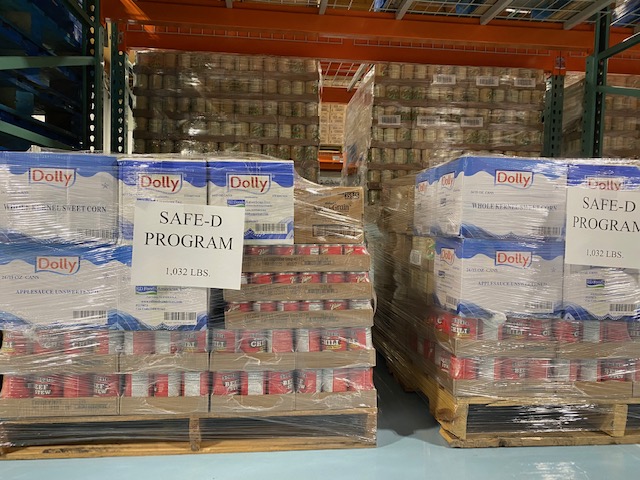Alaska’s Department of Health risks losing federal funding for its food stamp program, warned a letter from the United States Department of Agriculture on Tuesday.
It said the department is out of compliance with federal standards for the Supplemental Nutrition Assistance Program due to what it described as “inefficient and ineffective administration.”
The Department of Health has struggled to manage a backlog of crisis proportions that began in 2022 and has left tens of thousands of Alaskans waiting months for critical food aid.
Commissioner Heidi Hedberg has said the backlog was caused by a cyberattack, outdated computer systems and a huge influx of paperwork after the state ended its public health emergency. Sources inside and outside the division have said the problem traces back much further and that chronic understaffing and deep workforce cuts in 2021 are to blame.
In December, Gov. Mike Dunleavy proposed spending an additional $8.8 million on 30 additional full-time employees to process applications at the Division of Public Assistance and $5 million to bolster supplies at the state’s food banks.
The SNAP application process should include an application form, an interview with the applicant and a process to verify the applicant is eligible. The federal government allowed Alaska’s overworked Division of Public Assistance to pause interviews as an onslaught of post-pandemic recertifications caused its backlog to surge. When its backlog ballooned again this fall, Alaska’s Department of Health has suspended the requisite interviews to speed up its recertification process for benefits, even though the USDA told it not to do so.
The state informed the USDA that it would continue its waivers in late November and the USDA repeated its denial in early December, according to the letter.
“We really needed to take those dramatic steps in order to ensure that Alaskans can have access to food,” Division of Public Assistance Director Deb Etheridge said at the time.
USDA insists on interviews because they ensure households receive the correct amount of benefits. The letter pointed out that this step is critical in Alaska, where the payment error rate is the highest in the nation. Division Director Deb Etheridge has said this number was skewed by the waiver the state was granted last year.
Health Commissioner Heidi Hedberg also told legislators that the division is authorizing food stamp recertifications without verifying the information in the applications if that information is not readily available. The letter warned this is also against the rules and is likely contributing to the state’s high rate of overpayments.
USDA Regional Administrator Jesus Mendoza Jr. warned that the violations could result in a suspension or “disallowance” of the federal funds the state uses to maintain the program. Further, he wrote that if there has been a major, systemic error in the state’s processing, it could leave Alaska on the hook to reimburse any overpayments.
He told the Department of Health it must immediately resume interviews for SNAP applications or recertifications and start verifying required information. He gave the department 14 days to do so.
In an email, Hedberg said the Department of Health has not yet responded to the letter.
“We remain in complete transparency in our communications with FNS and USDA regarding our areas of focus and concern as well as our evolving plans to address them,” she said. “We continue to work with USDA and our teams to outline a path forward that is achievable without compromising efficiency. We are not interested in creating a new backlog just so we can ‘check a box.’”
She added that the Division of Public Assistance has whittled the backlog down to 3,500 and is on track to be caught up by the end of the month — and that is their primary focus.

